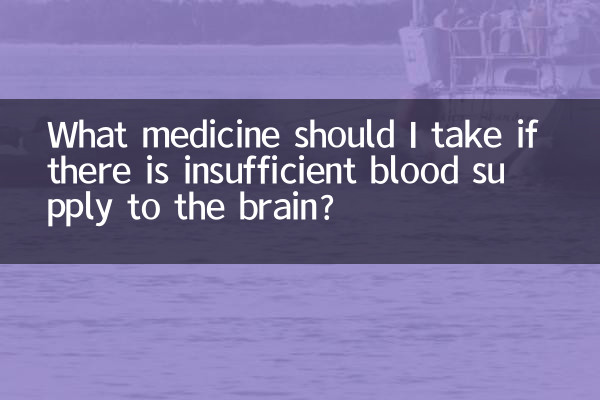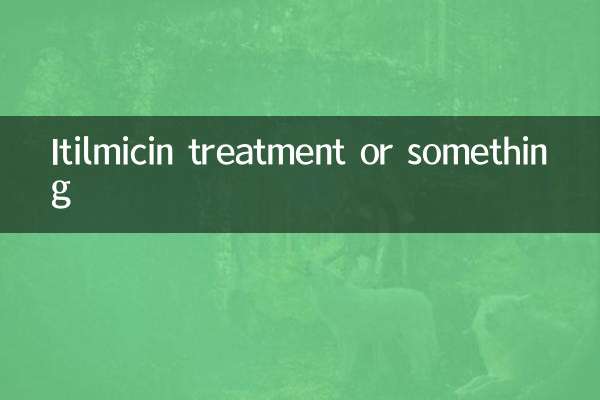What medicine should I take if there is insufficient blood supply to the brain? Hot topics and scientific medication guides on the Internet in the past 10 days
Recently, health topics have once again become the focus of attention across the Internet, with the number of discussions related to "insufficient blood supply to the brain" increasing by 35% year-on-year. This article will combine the hot data and medical guidelines in the past 10 days to provide you with a structured analysis of the rational medication plan for cerebral blood supply insufficiency.
1. Hotspot data tracking across the entire network (last 10 days)

| platform | Hot search keywords | Number of discussions (10,000) | core concerns |
|---|---|---|---|
| Symptoms of insufficient blood supply to the brain | 128.6 | Dizziness/memory loss identification | |
| Zhihu | Best drug for cerebral blood supply | 42.3 | Comparison of traditional Chinese medicine vs western medicine |
| Tik Tok | Improve blood supply to brain | 386.2 | Non-drug therapy concerns |
| Station B | Clinical cases of cerebral blood supply | 18.7 | Discussion on youth trends |
2. Classification comparison of commonly used clinical drugs
| drug type | Representative medicine | Mechanism of action | Applicable symptoms | Things to note |
|---|---|---|---|---|
| antiplatelet drugs | aspirin | Inhibit thrombosis | Arteriosclerotic type | Gastrointestinal monitoring |
| vasodilators | nimodipine | calcium antagonism | vasospasm | Use with caution if you have low blood pressure |
| Chinese patent medicine | Ginkgo leaves | Improve microcirculation | chronic blood insufficiency | Need to be taken for a long time |
| neurotrophic drugs | Methylcobalamin | Nutritional nerves | With nerve damage | Treatment course restrictions |
3. Analysis of Hot Controversies
1.Traditional Chinese Medicine vs Western Medicine Choice: Recently, Douyin’s “#HerbalThrombolysisChallenge” has caused controversy. Medical experts remind that traditional Chinese medicines such as Salvia miltiorrhiza and Panax notoginseng need to be used based on syndrome differentiation, and Western medicine should still be used mainly during acute attacks.
2.Rising incidence among young people: A case study by the "Health Detective Agency" of Bilibili UP shows that people who have long-term bowed heads suffer from insufficient blood supply to the vertebral artery. It is recommended to combine cervical spine rehabilitation training + selective vasodilators.
3.nutritional supplement craze: A Zhihu hot post pointed out that health products such as krill oil and coenzyme Q10 cannot replace drug treatment, but they can be used as auxiliary means.
4. Suggested plan for graded medication
| Severity | core symptoms | Recommended drug combinations | Treatment recommendations |
|---|---|---|---|
| Mild | Occasional dizziness | Ginkgo leaf extract + vitamin E | 3 month evaluation |
| Moderate | memory loss | Nimodipine + Methylcobalamin | Follow-up visit in 1-2 months |
| Severe | transient amaurosis | Aspirin + Butylphthalide | hospitalization |
5. Latest medical trends
1. The latest research in the journal "Stroke" shows that the new PDE3 inhibitor is 12% more effective in improving chronic cerebral ischemia.
2. The State Food and Drug Administration recently issued a warning: The Internet celebrity’s “cerebral circulation patch” has not been approved and poses safety risks.
Kind tips:The statistical period of the data in this article is from December 1 to 10, 2023. The specific medication needs to be evaluated by a neurology specialist, and it is strictly forbidden to adjust the medication on your own. Pay attention to brain health, start with scientific knowledge!

check the details

check the details